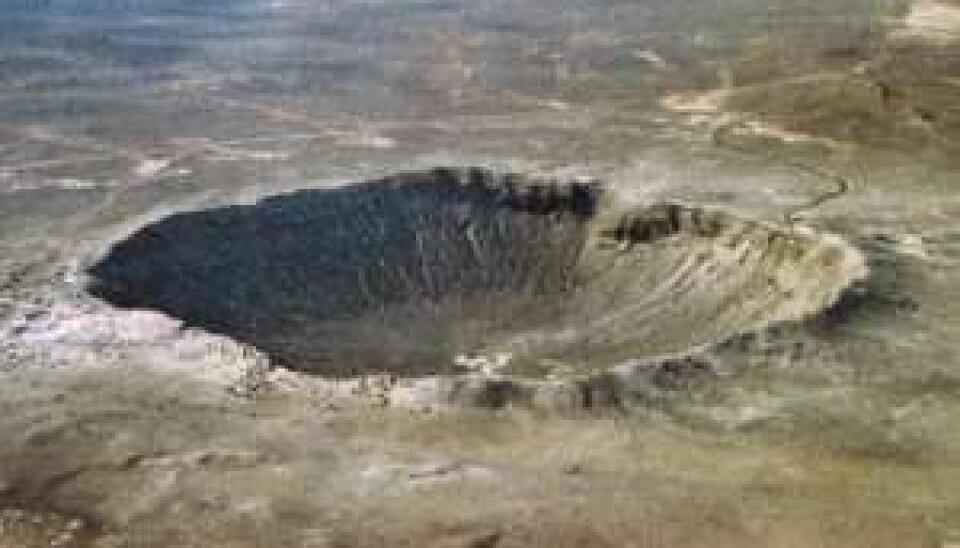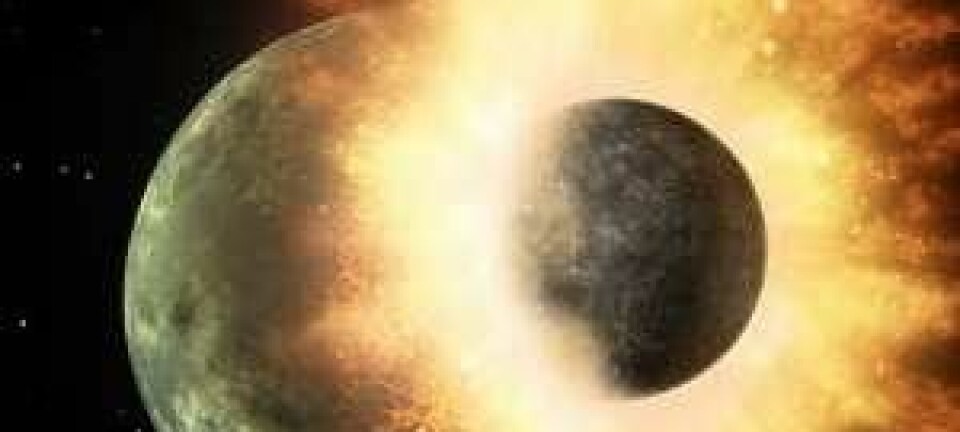
World unlikely to end in 2012, say scientists
The claimed prediction by the ancient Mayas of the end of the world, as popularised in the film '2012', gets a sceptical assessment from the scientific community.
With the new year just around the corner, it's natural to start thinking about what 2012 has in store for us.
Well, for sports fans there's Euro 2012 and the Olympic Games to look forward to.
And for devotees of current affairs, there's the thrilling prospect of a US presidential election.
But then again, there could be deep trouble ahead. The collapse of the euro, perhaps. Or maybe 2012 will turn out to be just as depicted in the film called ... 2012.
“No serious scholar would claim the Mayas believed that the world will end on 21 December 2012”.
Finn Madsen
For those who missed it, 2012 was a disaster movie in which the world comes to an end – a shocking event apparently predicted with pinpoint accuracy by the Maya civilisation, thousands of years ago.
But is it pure science fiction, or is there a genuine possibility that the film's doomsday prophecies could be true? ScienceNordic asked the experts for their views.
False prediction
It is generally accepted that the very exact Maya calendar terminates at the winter solstice on 21 December 2012, and this has led some people to conclude that the world will come to an end on that date.
But according to Danish historian Finn Madsen, an expert on Maya culture and author of several books on the Mesoamerican civilisation, the Mayas never predicted the end of the world.
"No serious scholar would claim the Mayas believed that the world will end on 21 December 2012," says Madsen. "It is true that their long-term calendar ends on that date, but all that one could imagine happening is the start of a new calendar, just as we do when the 2011 calendar expires and we replace it with the 2012 version."
“Total hotchpotch”
But on the internet there are websites and videos with an entirely different take on the expiring Maya calendar. Just like the film 2012, they offer some very gloomy predictions of what will happen on 21 December 2012.
The most widely-held view is described on a YouTube video. The claim is that on the day the Maya calendar expires, the solar system will cross the galactic equator, triggering all sorts of apocalyptic happenings.
Space scientist Søren Brandt of DTU Space at the Technical University of Denmark has looked into this claim and describes it as a “total hotchpotch” and “nonsense on a higher plane”.
“The climate and weather on Earth are determined by our position relative to the Sun, and the tides are determined by the Moon,” says Brandt. “The solar system's position in the galaxy has nothing to do with the climate or anything else on the Earth."
No doomsday meteors in sight
Giant meteors are another popular doomsday scenario among those who believe that the world will end on the last day of the Maya calendar. Brandt agrees that the impact of a huge meteor travelling at a speed of 30 kilometres per second would constitute a real threat to mankind.
But what the astronomers can see through their telescopes gives no indication that the Earth will be hit by a giant meteor next year. “There is nothing that makes 2012 particularly magical in that respect,“ says Brandt.
Others speculate that a giant solar flare will occur in 2012, but Brandt says this is highly unlikely. Solar flare activity peaks at 11-year intervals; the next hotspot is forecast for 2013 or 2014 and is expected to be milder than in previous decades.
Scientists agree that one has to look at a time period of up to 1,000 million years before there is a major risk of a solar flare big enough to have biological consequences on Earth.
Lively imaginations
Yet another doomsday scenario envisioned for 21 December 2012 is a polar inversion, in which the magnetic poles of the Earth swop places. There is speculation of catastrophic climate change in connection with polar inversion, but such events do not happen overnight. On average it takes 5,000 years for the poles to change around, and scientists agree that there are no signs of a polar inversion taking place any time soon.
All in all, science can find no portents that 21 December 2012 will be a fateful day. Maya expert Finn Madsen thinks the doomsday prophecies are simply the product of lively imaginations.
“I won't be withdrawing my pension savings just before 21 December 2012, and I am confident of celebrating Christmas three days later.”
Read the article in Danish at videnskab.dk
Translated by: Nigel Mander






